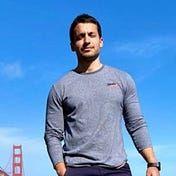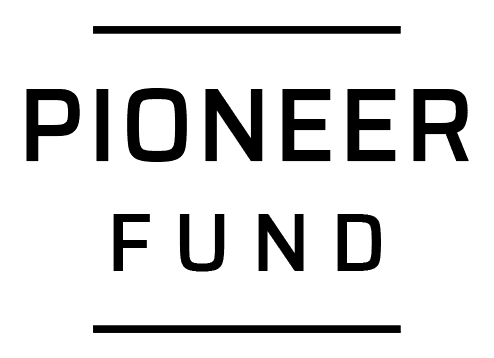Combining data from different sources is key for the future of wearables and health-tech - David Lee, Head of Samsung Next

David is now leading Samsung NEXT, who has (amongst so many other things) some of the most innovative wearables in the world. He comes from an entrepreneurial family, started as an early employee in Google and led SV Angel, one of the most well known funds in SF. He was named in the Forbes Magazine's Midas list twice, and during his time at SV Angel, he invested in Doordash, Product Hunt, OpenDoor, Snapchat and others.
We had a great time discussing a range of topics including his career, his investing philosophy, and how to build the culture of a company. Here are some of the key insights below.
Number 1: build, don't take. Number 2: Don't build a company, instead be the person behind the builders
David's father was an entrepreneur himself - he made the first ever automated fortune cookie machine. He learnt two key lessons from his father's journey. Number 1: build, don't take. Number 2: Don't build a company, instead be the person behind the founders.
He started off in the New Business Development team at Google
It was here where he met Ron Conway, one of the first investors in Google. Ron became his mentor and helped him land a job at his first startup StumbleUpon. Afterwards he teamed up with Ron to lead SV Angel from 2008 and worked together for 6–7 years supporting a variety of ventures.
"I always wanted to get to a point where I would be helping and supporting builders"
One of the biggest mistakes he's made when investing is choosing NOT to invest in talented founders because he's not so keen on the idea
To David, passing on that and then seeing the founders succeed exceptionally is much harder than seeing a good idea but not being crazy about the founders becoming successful. He believes it's too easy to overthink it and ‘look at the data when it doesn't exist'. If the signals are there that the team has a high potential and are clear thinkers but you still don't exist, then there are big regrets.
The inputs into investing change depending on the company's stage
When you're looking to support a company at series B / C you have data on the founders, the idea, and the company and so it makes much more sense to use a lot of inputs when it comes to decision making. However, when focusing on much earlier investment opportunities during the seed round or series A you have to go by the founders and the idea.
You can draw a lot of lessons from sports when it comes to investing in startups
The analogy is very similar for a professional athlete doing what they love since they were 8 years old to an engineer building something they find interesting. The feedback loop is tight and there is a healthy degree of competitiveness. Really great engineers want to work on the most challenging problems and exceptional athletes want to win the hardest competitions. Generally great founders will have the drive and talent to look for problems that matter and whilst you can try to project talent from an early age, it can be very difficult which is where the fun aspect comes in. Founders will develop and change so much throughout their careers that it can be extremely difficult to predict where they will be in five years' time.
Whilst there is a trend towards a greater global distribution of talent, San Francisco will continue to be a hub for talent
In David's view, San Francisco is both underrated and overrated at the same time. Driven by the pandemic and trends of people living in different places, the world of innovation and tech communities is becoming more distributed. The traditional view is that you have to be close to the centre of gravity to do anything tech-related. However, nowadays it's become more of a state of mind, and it's not too uncommon for cofounders to not have met in person in the first few months.
So, the gravitational pull towards Silicon Valley is reduced. To take an example from sports, arguably the best basketball player in the world right now Giannis Antetokounmpo is from Greece. If you were to say in the 90s that the best player isn't an American, you'd have been laughed at. Talent is becoming more distributed.
However, from a probability standpoint to have a career in basketball you have to be in the US. So the bay area does still matter a lot, and it's power relative to other communities is still significant.
At Samsung Next, David has a unique philosophy towards investing
David believes that in tech, the ‘pie' is always growing. The market is always getting bigger. If you create more value than you capture, the business model will be a good one to ride the wave on. So the focus is to invest in companies and help and support them along the way. The philosophy is that for companies that his team invests in, they hope to create a lot of value to benefit the whole community and understand how the world is going to move in areas that they care about. The best way to think about these questions is to support the people that are building the future.
Value capture in essence is defined as "are we learning, are we getting better, are we building better companies?"
The number one thing for an investor is timing
There is more bad timing than there is bad ideas. When you look at investing and see what didn't work, in some markets it becomes clear that there can be a real advantage to being the last mover. For example, Youtube was pretty late.
Terra five years ago probably wouldn't work, the timing wouldn't have been right. People were only just getting wearables, conversations about fitness were only just starting. Whereas today there is a different conversation around health, people are tracking their steps daily and the global mindset has shifted. Post-pandemic, people are wanting to make better health decisions and Terra is at the forefront of that wave.
"For us at Samsung Next we support the best builders and founders in areas that we care about"
How do you get the timing right?
A lot of it comes down to understanding the founders and figuring out if they are up to speed with the latest tech and understand what is possible. For David, it's about meeting really talented people who can work on these problems and articulate when the timing is right. Human needs change much slower than how tech changes.
"Investors need to stop thinking about probabilities and start thinking about expected values"
David's approach to investing is to look at the major trends and understand which companies are best positioned to succeed
David's team doesn't invest based on a company's stage or valuation. He invests based on opportunity and is keen to work with any company where he really believes in the team.
Overall, he's industry agnostic but trend specific. He sees it like an impressionist painting - the lines aren't clearly defined, but the message is communicated clearly. For example, in health and fitness the general trend is that people are more mindful of their health and think about it more holistically and so want more inputs - this trend can cut across a lot of industries including hardware, software, content, and Terra is well positioned to succeed here.
David has a Samsung Watch and also an Oura Ring
As a cancer survivor, he went through intense treatment and so uses the devices to keep tabs on the health of his heart and especially pays attention to the ECG data. His primary use is to focus on steps, and sleeping.
He generally focussed on the inputs - did he walk 10,000 steps, meditate, stretch, and try to do a little something every day.
He believes that combining data from different sources to influence outcomes is key
Data can be aggregated, structured and made usable by others and Terra can enable this. A lot of machine learning models are being constructed in the preventative health space to do exactly this, and it's exciting to see how much continuous data can transform the way we measure our health.
The first step to defining a culture is to set the immune system of the company
Culture exists in teams, households, and any group of people that have common goals. As leaders in the company, you are the culture setters and what you do and say everyday is important.
David believes that the most important thing is to start off by defining what you are not - to be able to look at a great candidate and figure out why they won't fit the culture of the company. Once this is done, the next step is to look internally and figure out what we are.
This comes down to making tradeoffs and being explicit about what is being looked for. For example, Barcelona looks for a specific type of player - someone who loves football, puts the team first, and spends Friday night training on the pitch whilst others are out partying.
There might be people who have the same output and talent as what you're looking for, but if they don't exhibit the same cultural values, they wouldn't fit in the team. At Terra we ask ourselves if we would be able to build a special forces team if we work remotely? And the answer is always no. Through the struggle the unit becomes a team.
Even in his own family David reflects that kids will never do what you tell them to do, but they will do what you do. They copy your actions - it's culture.
"One of the hardest things about being a leader during tough times is to continue to exude a calm demeanour and communicate that the company is on the right track"
What does the future of wearables and the fitness space look like?
David believes that the fitness and wearables space will hit an inflection point. Once you start tying these devices to outcomes then you'll start to really see a huge jump in mainstream use. For example, many companies do clinical trials and in the trials on patients you want data not just around genomes and vitals, but also longitudinal data around what they do over time: what have they done in the last three years regarding what they eat, how much they exercise, how much they sleep, and much more. Once this data can be structured in a meaningful way for these companies then the space will be transformed and you'll see more people incentivised to use different wearables.





